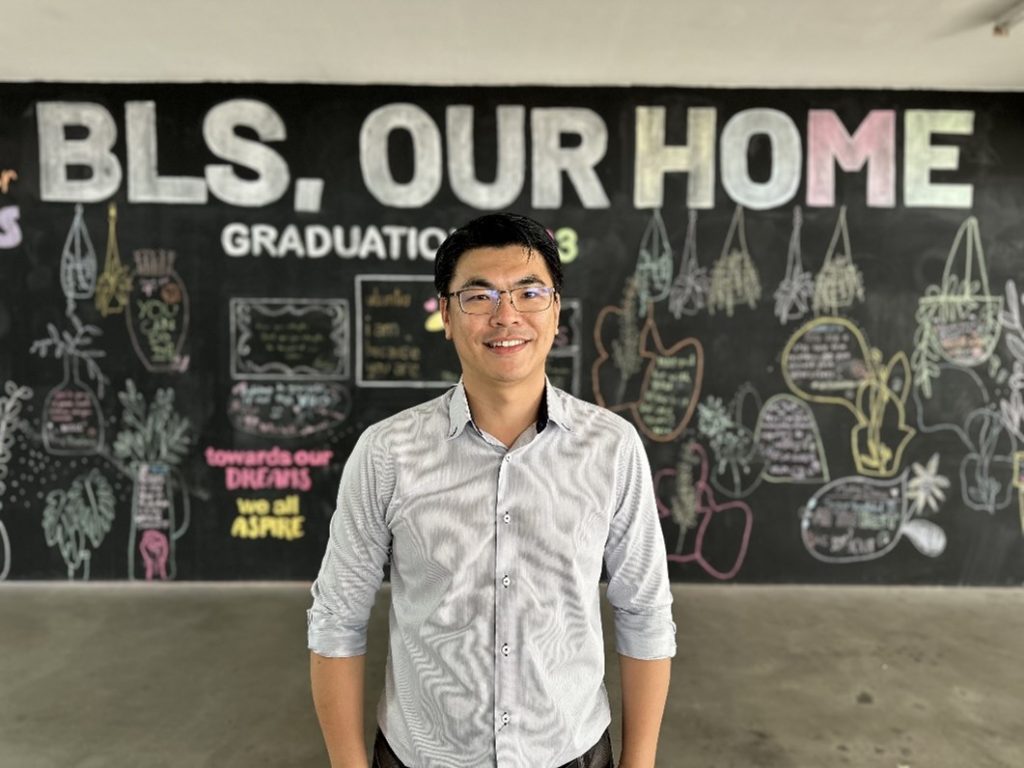Young Children’s Voices in Mathematical Problem Solving
Contributed by Dr Ho Siew Yin and Sng Wei Qin Abbie, from NTUC First Campus, for SingTeach Virtual […]
Read More
Boon Lay Secondary School (BLS) is redefining education by placing character development at the forefront of its Character and Citizen Education (CCE) curriculum. Based on a Character First Education framework, BLS designed a flagship CCA-Centric Model that involves cross-stream and cross-level discussion which aims to create stream-blind learning experiences that promote social mixing. The school’s Head of the CCE Department, Mr Hoon Yeng Wei, shares with us more about what this model entails and the positive impact the curriculum has brought not just to the students but the community.

“In the ever-evolving landscape of education, the focus has shifted from mere academic achievement to the holistic development of young individuals,” Yeng Wei remarks. “As such, at Boon Lay Secondary, we firmly believe in a Character First Education, and fostering self-awareness and social awareness is pivotal in shaping well-rounded students.”
According to Yeng Wei, who has been teaching for 16 years, these qualities serve as the cornerstones of personal growth and responsible citizenship. Through the Character First Education framework, the school instils vital Social and Emotional Learning (SEL) skills, including self-awareness, self-regulation, empathy and interpersonal skills. These equip students with the tools they need to build positive relationships and make responsible decisions.
One key strategy employed by BLS is the Mentoring for Growth initiative within the context of Co-Curricular Activities (CCAs). Yeng Wei describes it as a process where senior students take on the role of leaders and mentor their younger peers, which helps foster positive relationships through role modelling.
“This not only benefits the juniors but also contributes to the personal growth and development of the seniors themselves,” he adds. Thus, this mutually beneficial arrangement plays a pivotal role in cultivating a sense of unity and trust within the student community.
Every BLS experience is a CCE experience. This is the belief that the school’s CCE department’s overarching philosophy revolves around. With that, CCE is seamlessly integrated into both the formal and informal curricula at BLS.
“We intentionally integrate CCE principles in key student development experiences and integrated programmes,” Yeng Wei explains. “We also leverage a Design-Thinking approach to take on the perspective of the learner.”
As such, CCE lessons are designed to be engaging and interactive, focusing on group activities and team-building exercises that nurture qualities such as cooperation, communication and empathy. These lessons further instil the importance of working harmoniously within a group, fostering a sense of responsibility towards both their peers and the broader community.
“Through these activities, students not only enhance their interpersonal skills but also develop a strong sense of community,” Yeng Wei emphasises.
At the crux of BLS’s CCE curriculum is its unique CCA-Centric Model that offers two structures for CCE delivery: CCE-Level and CCA-Family.
The CCA-Family structure involves the delivery of CCE curriculum within the CCAs that students join, thereby promoting interaction and learning between the BLS juniors and seniors in a stream-blind manner that promotes social mixing. This is further expanded through the CCE-Level structure that pairs two disparate CCAs together for greater gender and racial representation (e.g., Boys’ Brigade and Contemporary Dance), which fosters a deeper appreciation for diversity and varied perspectives. BLS’s CCA-Centric Model underscores the school’s commitment to holistic education that goes beyond the traditional boundaries of academic learning.
“Both structures promote social mixing, enabling our students to live out the school value of respect as they demonstrate appreciation for diversity and social cohesion,” Yeng Wei reiterates.
BLS’s commitment to CCE extends well beyond classroom boundaries by embracing the Asset-Based Community Development (ABCD) approach, which seeks to harness a community’s existing strengths and resources for positive change. The school partners with external organizations like Down Syndrome Association, Fei Yue Community Services and more for its Values in Action (VIA) programme.
“The synergy of these collaborations enables students to build connections with their partners and empowers them to adeptly employ technology and creativity to address tangible real-world challenges using Design-Thinking,” Yeng Wei explains.
One of the most tangible outcomes for Yeng Wei is when he sees “students coming forward to seek advice and help for their peers,” which he claims are testament to their increase in self-confidence and moral courage. Students who have displayed such moral courage, such as sharing with teachers their concerns about their peers, are affirmed through Project P.R.A.I.S.E., which facilitates positive relationships between staff, students and parents by highlighting and sharing students’ good deeds and actions. It is also a sign of “the rise in intrinsic motivation for students to learn and articulate their perspectives during CCE lessons,” he adds.
The VIA programme’s influence has garnered recognition from BLS’s partners, notably exemplified by the SafeHearts@Boon Lay project. “Our students have significantly expanded the reach of the SafeHearts programme, shedding light on the crucial lifesaving skills of CPR-AED and first aid within the Boon Lay community through innovative prototypes and digital outreach.”
This initiative highlights technology’s crucial role in promoting awareness while simultaneously reinforcing students’ commitment to enhancing community safety measures and emergency response capabilities. Another instance within the SafeHearts programme highlights the ingenuity of BLS students. “I was impressed with a group of students who utilized the Design-Thinking methodology to understand the challenges faced by children in practising CPR on the actual CPR manikin,” Yeng Wei shares.
“The group proceeded tounderstand their needs and created a bottle-stuffed manikin suitable for children to practice CPR on.” Through this inventive problem-solving process, the group not only addressed a practical need but also cultivated essential 21st century competencies (21CC).